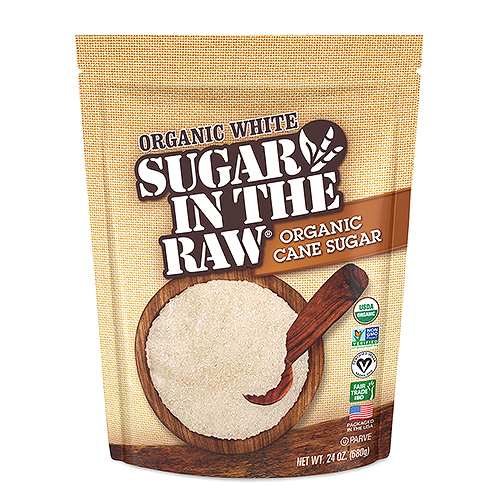Cane Sugar Processing: Secret Technologies for Superior Sugar Manufacturing
Cane Sugar Processing: Secret Technologies for Superior Sugar Manufacturing
Blog Article
A Detailed Overview of the Health and Economic Ramifications of Cane Sugar Processing on Local Neighborhoods
Walking cane sugar processing plays an essential duty in forming the financial landscape of neighborhood neighborhoods, supplying work chances and boosting ancillary markets. The wellness implications linked with high sugar usage can not be overlooked, as they contribute to rising rates of weight problems and diabetes mellitus.
Financial Advantages of Walking Cane Sugar Handling
Walking cane sugar processing supplies substantial financial benefits that extend past the immediate agricultural sector. The growing and processing of sugarcane develop various task opportunities, from farming to manufacturing and circulation. This work generation not only supports local economies yet likewise cultivates area growth by giving stable earnings resources for households.
Moreover, the sugar market stimulates secondary services, consisting of transportation, equipment supply, and product packaging solutions (Cane Sugar Processing). As these sectors expand, they add to an extra durable financial framework, boosting general area resilience. The export capacity of refined walking stick sugar even more magnifies economic benefits, positioning regions as competitive players in worldwide markets
Financial investment in contemporary handling centers can bring about boosted efficiency and efficiency, therefore minimizing waste and optimizing resource usage. This shift not just benefits the local economy yet also sustains sustainability efforts by lessening environmental impacts.
Moreover, the earnings produced from cane sugar processing can be reinvested in local infrastructure, education and learning, and health care, promoting all natural community growth. Overall, the economic advantages of walking cane sugar processing are complex, offering a structure for withstanding success in farming areas.
Health And Wellness Threats Related To Sugar Usage
Too much sugar consumption presents considerable health and wellness threats that call for serious attention. High consumption of added sugars, specifically from processed foods and beverages, has actually been connected to numerous health problems. Among the most pressing worries is obesity, as sugary diet regimens add to an enhanced caloric intake without giving vital nutrients. This excess can cause metabolic problems, including kind 2 diabetic issues, which has actually become increasingly prevalent in both grownups and kids - Cane Sugar Processing.
Furthermore, high sugar intake is related to heart disease. Elevated blood sugar degrees can result in insulin resistance, a forerunner to different heart-related issues. In addition, sugar can have destructive results on dental health and wellness, causing tooth cavities and periodontal illness, as bacteria in the mouth grow on sugar, generating acids that deteriorate tooth enamel.
Moreover, emerging study suggests a possible link between high sugar intake and mental health conditions, such as anxiety and anxiety. As neighborhoods come to grips with these health and wellness dangers, it comes to be vital to advertise recognition and encourage much healthier nutritional choices. Dealing with sugar consumption is important not only for individual health and wellness but additionally for the overall health of neighborhood neighborhoods, emphasizing the demand for thorough public health and wellness approaches.
Ecological Effects of Sugar Manufacturing
Frequently neglected in conversations concerning sugar's ramifications is the substantial environmental influence of sugar production. The cultivation of sugarcane typically demands comprehensive land usage, bring about deforestation, loss of biodiversity, and interruption of regional ecological communities. The conversion of woodlands and marshes into sugar vineyards can lead to habitat destruction, threatening various species and modifying eco-friendly equilibrium.
In addition, sugar manufacturing is resource-intensive, consuming considerable quantities of water for irrigation. This can bring about deficiency of regional water sources, adversely influencing both farming techniques and area access to tidy water. Additionally, making use of chemical fertilizers and chemicals in sugarcane farming can contribute to soil deterioration and water pollution, as overflow from these chemicals gets in neighboring rivers why not try these out and lakes, affecting marine life and human health and wellness.
The ecological footprint encompasses the handling stage, where power consumption and waste generation additional aggravate ecological problems. Air pollution from shedding sugarcane fields, along with greenhouse gas discharges, add to environment change. Thus, the ecological effects of sugar production warrant major consideration, prompting stakeholders to embrace more sustainable methods to mitigate these adverse results on regional environments and areas.
Work Development and Community Advancement
The ecological difficulties posed by sugar production are frequently counteracted by its potential for economic benefits, especially in work creation and neighborhood growth. The cane sugar market acts as a considerable source of work in lots of backwoods, providing work across numerous skill degrees, from agricultural labor to handling and circulation roles. This employment not only sustains individual households but additionally contributes to the general economic vigor of local areas.
Additionally, the establishment of sugar processing facilities boosts ancillary services, such as transportation services, equipment supply, and maintenance companies. As these companies flourish, they create added jobs and strengthen regional economies. The revenue generated from the sugar sector additionally leads to increased tax obligation earnings, which can be reinvested right into social work such as education and learning, healthcare, and framework advancement.
Additionally, the sugar sector usually takes part in community development efforts, such as sustaining neighborhood colleges and wellness programs, consequently boosting the high quality of life for homeowners. By fostering strong area connections and advertising financial development, the cane sugar handling sector plays a vital duty in uplifting local populaces, making it an essential component of lasting advancement techniques in sugar-producing regions.
Harmonizing Wellness and Economic Development
In browsing the intricacies of cane sugar processing, a critical difficulty hinges on stabilizing health and wellness considerations with economic development. The sugar industry significantly adds to local economic climates by generating tasks, boosting relevant sectors, and boosting tax earnings. Nevertheless, the health and wellness ramifications related to too much sugar consumption can result in chronic illness such as obesity, diabetic issues, and cardio concerns, which can problem public health and wellness systems and reduce labor force efficiency.

Additionally, governing structures can play a pivotal role in guiding industry techniques towards even more health-conscious and sustainable methods. By cultivating partnership in between federal government bodies, wellness organizations, and the sugar industry, communities can navigate the dichotomy of wellness and economic growth, making certain that the benefits of walking stick sugar handling are equitably shared while focusing on public my response health and wellness.
Verdict
To conclude, the handling of cane sugar provides both substantial financial advantages and significant health and wellness risks for regional areas. While it fosters job development and stimulates regional growth, the associated health and wellness concerns, especially relating to excessive weight and diabetes, require a careful harmonizing act. By promoting accountable intake and investing in area education and learning and sustainable techniques, it is feasible to make the most of financial benefits while minimizing adverse wellness results, consequently making certain a healthier future for regional populations.
In addition, sugar can have destructive effects on oral Bonuses wellness, resulting in dental caries and periodontal disease, as microorganisms in the mouth prosper on sugar, producing acids that deteriorate tooth enamel.
Dealing with sugar consumption is important not just for individual wellness yet likewise for the general well-being of regional areas, stressing the requirement for extensive public wellness techniques.
Frequently ignored in conversations about sugar's ramifications is the significant ecological impact of sugar production. The wellness ramifications linked with excessive sugar intake can lead to chronic diseases such as obesity, diabetes mellitus, and cardio issues, which can problem public health systems and reduce workforce efficiency.

Report this page